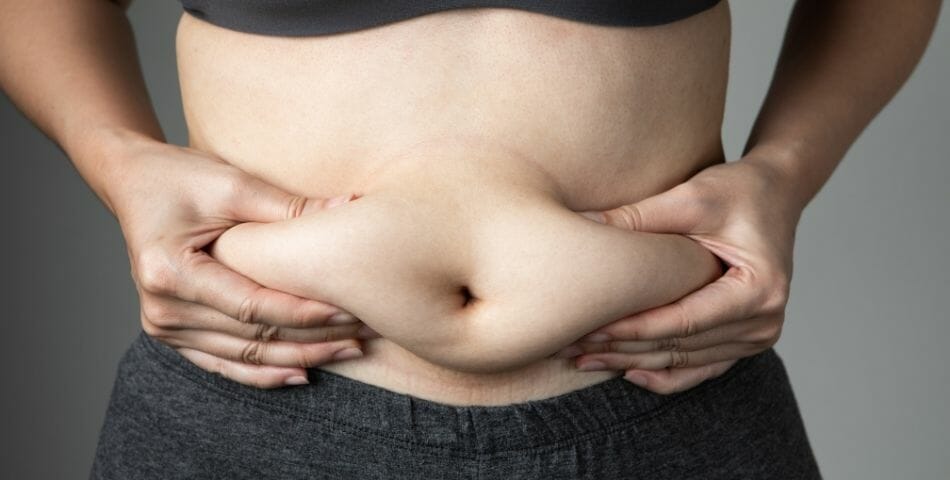5 Menopause detox strategies to feel your best. Are hot flashes becoming a part of your daily life? Are you frustrated by the extra 15 lbs. of belly fat you’ve been trying to lose for the last 5 years? Has it been ages since you had a good night’s sleep? These issues have their origins in toxicity. We discuss these toxins and 5 menopause detox strategies you can do to lose weight, gain energy and feel better!
If you suffer from these issues (and others) your body’s detox systems aren’t releasing their toxic load. And in today’s world, the toxic burden is great.
Internal and external menopause toxin exposure
You are exposed to many environmental toxins and endotoxins from within. You create toxins from stress, bacteria, parasites, fungus, poorly digested food and your own internal metabolic processes.
Efficient menopause detox pathways move out waste products, poisons and toxic substances. This helps your body to release excess weight.
Your body has its own built-in detox systems that are constantly removing these toxic waste products without you even having to think about it. Detox depends on your foundational health systems working efficiently. Your foundational health systems are your digestion, blood sugar, minerals, hydration and fatty acids. When we consider menopause detox strategies, they are always a consequence of your foundational health systems working well.
You can see why a 2-week quick cleanse won’t resolve the symptoms you may be suffering from, including those hot flashes and extra pounds of belly fat, right? Actually a cleanse may even make you more toxic if your detox pathways are clogged and you can’t release the toxins. Crazy right?
Menopause detox strategies and digestion

Menopause detox strategies begin with digestion in your brain. Seeing and smelling food before you even take your first bite gets the digestive process started. But unfortunately in our modern stressed life, we often don’t stop to smell our food; chew our food or even eat at a table.
We eat at our desks while still on the phone, in the car collecting kids or on a train or bus during our commute.
We are shoving food down our throats with no mindful thoughts to what is going to happen to these chemicals when they hit our stomachs.
By the time your food does get to the stomach, your brain, pancreas, liver and gallbladder have been hard at work trying to do their best to digest the food and breakdown into chyme. This north to south process goes from your brain to mouth all the way to your anus. It is closely involved in breaking down your toxic exposure.
Menopause detox strategies and stress
Being toxic is stressful and keeps you in a sympathetic state. This makes every process from digestion to blood sugar to stress management more challenging leaving you emotionally exhausted.
A toxic build up can lead to weight gain in women of all ages but it is especially problematic for women who are already experiencing hormonal fluctuations in perimenopause and menopause. Hormones act as messengers that instruct cells and organs on what to do and this includes sending important signals for your body to get rid of waste and toxins.
Estrogen dominance is very common in menopause because the liver is unable to efficiently metabolize estrogens and xenoestrogens due to toxins. This can be made worse by certain genetic variations such as COMT but generally if your detox systems are working well, then this shouldn’t be a problem.
Hormones are produced and broken down along specific metabolic pathways in your body. When your metabolic pathways are burdened by toxins and waste material, it’s much harder for your cells to communicate effectively and that can lead to weight gain in menopause.

How does excess body fat play a role in menopause detox?
Too much adipose tissue – the 15 lbs. of belly fat that has crept up on you – hurts you!
Adipose tissue stores toxins like heavy metals, petroleum (even from your beauty products!) and other harmful chemicals. These toxins are known as xenoestrogens because they act like estrogens in the body.
Xenoestrogens are “foreign” estrogens, substances that are close enough in molecular structure to estrogen that they can bind to estrogen receptor sites with potentially hazardous outcomes. Sources of Xenoestrogens include plastics, pesticides, chemicals, and water systems. This is particularly problematic in women in menopause.

In order to let go of these toxins, your metabolism must be able to convert fats into water. Then the toxins can leave your body via urine in your kidneys and poop from your bowels.
This is when menopausal women’s weight issues begin. You are not able to metabolize fats in your liver so you aren’t releasing toxins. And then your body holds onto fat!
This is why at Metabolix Health, we are passionate about testing women for their ability to metabolize fats, carbs and protein. If you aren’t metabolizing well, then you won’t lose weight and you also won’t have much energy. You are likely to also experience brain fog, feel anxious and other unpleasant symptoms.
A 2-week cleanse isn’t going to correct this process. Sadly, the word detox has become synonymous with marketing driven quick cleanses.
Live Life Well!
Join our email list for exclusive offers and the latest news
We agree to never spam you, by submitting you agree to our Terms of Services
5 menopause detox strategies
Menopause detox strategy #1: clean, nutrient dense foods and toxins
- Eat a clean, nutrient-dense diet including a good range of macronutrients, micronutrients and locally sourced foods. Increase your intake of green vegetables. Focusing on vegetables first is always a good idea with less protein and definitely less processed carbohydrates. There is no one size fits all when it comes to foods but we recommend a nutrient dense whole foods approach unless you have specific food intolerances or digestive issues in which case, you must work with a health professional trained in these areas because going it alone reading the internet as your doctor is never a good idea and usually ends in worse symptoms than you started with.

Menopause detox strategy #2: alcohol intake and toxins
- Skip the alcohol for a season. Working with hundreds of women in perimenopause and menopause, I have seen firsthand how alcohol is really unhelpful for your liver metabolism, weight gain, hormone balance and overall sense of wellbeing. At least, keep your alcohol intake to a minimum – maybe a couple of glasses a week. I don’t want to seem like a spoiler of fun, but you really want to feel better, look better (sexier in your clothes) and feel like your old self again, right? I an assure you that when you reduce or remove the alcohol, you will be amazed how your life improves over time. it will make it easier to then deal with the other cravings that also come with this – such as sugar cravings and salt cravings. if you do choose to drink alcohol, be aware that you want to source wines that are low in sulfates and other chemical compounds. There are healthier wines and alcohols to enjoy.

Menopause strategy #3:coffee intake and toxins
- Reduce your intake of coffee to balance your stress hormones. A cup of coffee each day may not be such an issue but several cups definitely are and if you are drinking coffee later in the day or at night, then you are certainly affecting your cortisol levels and sleep quality. Also the type of coffee you are drinking and what you are adding to your coffee are relevant to how it is affecting you. There is coffee that is mold free, organic and healthy, and there is toxic, moldy coffee with additives, sugar, and other chemicals added.

Menopause detox strategy #4: increase movement
- Increase movement, not intense exercise but getting outside or rebounding or yoga is always a good idea. you want to sweat to release toxins. If you have access to an infra red sauna then I recommend you starting a series of sauna sessions. This can help you to relax and sweat out toxins, a double benefit.

Menopause detox strategy #5: remove toxins from your home
- Focus on removing toxins from your home – your cookware, cleaning products, makeup, personal products, materials in your home (this can take a lot of time, financial resources so it isn’t a short term project). You will be amazed at how many toxins are in our homes. Opening up the windows in winter can be a good idea to keep air circulation going. Our homes can become toxic just through lack of ventilation and tight air systems.

Next steps with menopause detox strategies
Are you ready to lose the 15lbs of belly fat for good; get a good night’s sleep and put an end to hot flashes? Getting your toxin overload under control through healthy menopause detox strategies is the way to go.
You don’t want to move the toxins around your body, you need to get them out so menopause detox starts with healthy foundations.
If you find that you have more questions than answers, and you are interested in learning more, schedule a free menopause detox call with our team. Don’t continue to suffer and waste money on pointless 2 week cleanses!
Working with a trained functional medicine and nutritional therapy practitioner who can help you dig into the foundations of your health is the way to go. We’ll help you put together a bio individual plan specifically designed for your needs. We look forward to working with you!
Resources:
- Chung, C., & Iwakiri, Y. (2013). The lymphatic vascular system in liver diseases: its role in ascites formation. Clinical and molecular hepatology, 19(2), 99–104. https://doi.org/10.3350/cmh.2013.19.2.99
- Pizzorno J. (2014). Glutathione!. Integrative medicine (Encinitas, Calif.), 13(1), 8–12.
- Shimizu M. (2012). Modulation of intestinal functions by dietary substances: an effective approach to health promotion. Journal of traditional and complementary medicine, 2(2), 81–83. https://doi.org/10.1016/s2225-4110(16)30080-3
- Hodges, R. E., & Minich, D. M. (2015). Modulation of Metabolic Detoxification Pathways Using Foods and Food-Derived Components: A Scientific Review with Clinical Application. Journal of nutrition and metabolism, 2015, 760689. https://doi.org/10.1155/2015/760689